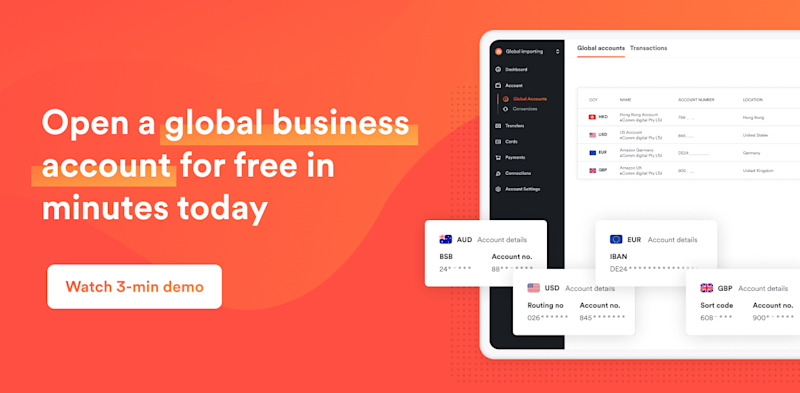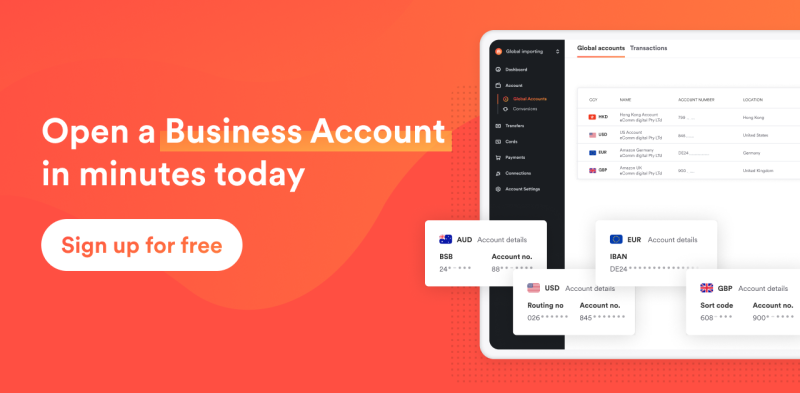Money transfer to Indonesia: business transfer methods, fees and processing time
- •Why use Indonesian Rupiah (IDR) for payments?
- •3 common methods to transfer to Indonesia
- •Remittance fees and transaction fees on different platforms
- •Comparing different ways of money transfer to Indonesia
- •Required documentation for remittances to Indonesia
- •Various methods of fund collection for remittances to Indonesia
- •FAQs
Hong Kong ranked as Indonesia’s 6th largest trading partner, and Indonesia holds a significant standing as a member of ASEAN and the Belt and Road Initiative. Currently, the majority of businesses in Indonesia are small and medium-sized enterprises (SMEs), with about 60% of the population aged between 15 and 64, showcasing substantial consumer potential. More and more Hong Kong businesses are investing in Indonesia, and in 2022, the bilateral trade in goods between the two grew by 12% to reach USD 5.7 billion, reflecting their close trade relationship. The demand for money transfer to Indonesia is anticipated to keep rising. This article will provide a detailed breakdown of the various remittance methods, and their associated fees and processing times.
Why use Indonesian Rupiah (IDR) for payments?
Hong Kong companies with subsidiaries or business partnerships in Indonesia often need to make cross-border transfers for various purposes, such as paying supplier invoices, payroll to local employees, or purchasing goods and raw materials. Making payments directly in IDR can help reduce foreign exchange costs and improve operational efficiency. Additionally, using local currency with Indonesian suppliers or clients can enhance trust and confidence in the partnership by leveraging the familiarity of the IDR.
The potential for growth in Indonesia's e-commerce market is substantial, attracting many Hong Kong businesses. Utilising IDR for payments to local merchants or logistics companies enhances the company's localisation image. According to the e-Economy Southeast Asia 2023 Report by Google, Temasek, and Bain & Company, Indonesia boasts the largest e-commerce market among ASEAN's six major economies. By 2025, the total value of e-commerce transactions in Indonesia is projected to reach USD 82 billion, surpassing the combined totals of Thailand, Vietnam, Malaysia, and Singapore. This highlights the immense business opportunities available.

3 common methods to transfer to Indonesia
Online remittances: Major traditional and virtual banks offer online remittance services so users can send international transfers via computers or smartphone apps. Simply input the recipient's information, the amount, and any other necessary details, and the bank then converts the currency using its exchange rates and applies various fees based on the transaction. While this method is highly secure, FX rates are often less favourable. For SMEs that transfer frequently, these remittance costs can significantly affect profits.
Bank wire transfers: Banks offer telegraphic transfer (TT) services, allowing remitters to send funds either by visiting a bank branch in person or using online remittance services. Typically, banks use the SWIFT system to transfer money to the bank accounts of Indonesian suppliers or local companies. When making a TT, it is important to consider the exchange rate, fees, currency conversion costs, and processing cutoff times. To achieve immediate fund crediting, remitters should make sure that all provided information is accurate to prevent delays due to supplementary documentation.
Airwallex: Airwallex is an all-in-one financial platform. Users can open a Business Account in just minutes and gain access to an Indonesian business account without incurring any account opening or monthly fees. Beyond offering more competitive exchange rates than traditional banks to help you save on costs, nearly 90% of remittances can be credited the same day, enhancing the relationships between SMEs and local suppliers or clients.
Remittance fees and transaction fees on different platforms
| Airwallex | Wire transfer and remittance through online banking |
|---|---|---|
Charges and remittance fee | No account opening fee, monthly fee, or hidden charges | Multiple charges, with basic handling fees ranging from HKD $50 to $200 |
FX rate | As low as 0.2% above the interbank rate | The rate is determined by the banks and is usually higher than the interbank rate |
Processing time | Over 90% of transfers utilise the local network instead of the SWIFT system; 90% of those transfers can be credited the same day | Transactions are usually processed through the SWIFT system or involve multiple intermediary banks, taking approximately 1 to 5 business days |
Comparing different ways of money transfer to Indonesia
In addition to the three primary methods for sending money to Indonesia – online banking, bank wire transfers, and financial platforms, money changers also offer remittance services. However, bank transfers come with several limitations, such as maximum transfer limits, required documentation, specific remittance details, and cutoff times. On the other hand, money changers may have inconsistent reliability and reputation, higher fees, and lower transparency, making them a less recommended option for remitting funds to Indonesia.
On the other hand, Airwallex stands out as a professional and secure all-in-one finance platform. Regulated by the Customs & Excise Department, it ensures high transparency in its remittance processes. Customers can easily track their remittances, and with low costs, nearly 90% of transfers arrive on the same day. This makes Airwallex one of the fastest and most efficient remittance methods available.
Required documentation for remittances to Indonesia
As a Hong Kong SME or wholesaler, the documents you need to prepare before making a remittance are as follows:
Business license or Certificate of Incorporation: to prove the legitimacy of your company's operations.
Proof of remittance purposes: such as sales contracts or invoices for the goods being sold.
Identification documents of the recipient: including their identification card or business licence.
Hong Kong bank account information: account number, bank name, and SWIFT code.
Completion of a remittance application form: providing detailed information such as the purpose of the remittance, amount, and payer.
Various methods of fund collection for remittances to Indonesia
Bank accounts: The most common method is through local bank account transfers. With an Indonesian bank account such as BCA, Mandiri, BRI, and others, the remitter would transfer the funds directly to that account.
e-Wallets: Payments can also be received through Indonesian local e-wallets such as OVO, GoPay, Dana, and others. These platforms are linked to bank accounts or e-wallets, making it convenient to receive cross-border remittances.
Airwallex: Airwallex, the all-in-one financial platform, offers global Business Accounts and streamlines the process of opening an IDR corporate account under your company’s name. This account includes an Indonesian branch code and a dedicated account number so your business can receive funds from various countries or regions seamlessly.

FAQs
1. Is it safe to transfer money via Airwallex?
Yes. Airwalex is an all-in-one financial platform, holding a Money Service Operator License issued by the Hong Kong Customs and Excise Department (Licence number: 16-09-01929). Airwallex's systems and procedures comply with the highest global security certifications, including achieving PCI DSS Level 1, SOC 1, and SOC 2 standards. During remittance, multiple identity verifications are performed for additional security.
Airwallex also has a deep understanding of compliance in each region where we operate, with lawyers and compliance officers stationed in the regions to focus on regulatory compliance and combating financial crimes.
2. Can I check the transfer progress at any time using Airwallex?
Yes, you can. Once your business remits through Airwallex, you can check the progress online at any time. Airwallex tracks payment status through webhooks and promptly detects any potential.
3. What are the restrictions for overseas or international remittances to Indonesia?
Indonesia does not have foreign exchange controls, so foreign funds can be freely remitted. However, when remitting from Hong Kong to Indonesia, restrictions are set by different banks. For example, Bank of China requires the correspondent bank recipient to provide relevant documents in order to comply with foreign exchange control and local banking regulations. If IDR is being paid to a non-resident account, and the daily transaction amount exceeds USD $1 million equivalent for each foreign payer, proof of transaction-related documents such as sales contracts and invoices must be provided by the recipient.
With Airwallex and its dedicated local payment network, businesses can conduct one-time or multiple international transfers without any minimum amount restriction, with nearly 90% of funds being credited on the same day at a low cost.
4. How does Airwallex determine the exchange rates?
Airwallex calculates exchange rates based on various factors, including market liquidity and prices from liquidity providers. Airwallex collaborates with multiple financial institutions globally, referencing the interbank exchange rates (which are the midpoint rates between the buying and selling rates in FX transactions) for 60+ trade currencies.
Share

Kirstie Lau is a fintech writer at Airwallex, and has built up a wealth of knowledge in financial operations systems. In her day-to-day, she dedicates herself to crafting content that fits the unique needs of businesses seeking financial operations solutions. Kirstie’s background in analytics and product marketing gives her a unique perspective on guiding businesses through the complex world of payments.
View this article in another region:Hong Kong SAR - 繁體中文

